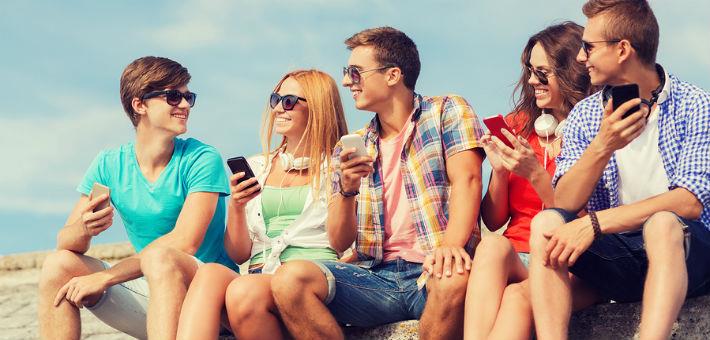
Teens’ Online and Offline Social Relations Relate to Their Self-Image
A study in Computers and Human Behavior shows that teens’ online socializing is related to higher perceived competence in various life domains, such as school, peers, and family. However, this is only true for teens who feel like they get sufficient social support from their peers at school.
Take aways
- Teens who often socialize via online media (e.g., chatting, posting, and texting) have a better self-image, but only when they feel supported by their peers at school.
- For teens who experience less social support from their peers, engaging in online socializing relates to a less positive self-image.
- This suggests that teens’ face-to-face interactions cannot be replaced by their cyber connections, but that online relationships can benefit the self-image of teens who already have positive relationships with their peers.
- Parents and professionals should ensure that teens have stable and fulfilling offline social connections before allowing them to engage in extensive online social networking.
Study information
The question?
How are teens’ online socializing activities and offline social support from peers at school related to their self-image?
Who?
733 10- to 18-year-olds (mean age: 15 years); 38% boys, 62% girls
Where?
Canada, British Columbia
How?
Teens from two elementary schools and six secondary schools in Canada completed a survey at school. The questions were about their perceived competence (self-image) in several life domains (e.g., physical appearance, parent and peer relations, and school performance), the amount of time they spent per week on online socializing activities (chatting, posting, texting, emailing, and online gaming), and the number of supportive peer relationships (social support) they felt from their peers at school.
Facts and findings
- Teens who reported to often engage in online socializing and also experienced high social support from their peers at school scored the highest on self-image.
- Teens who reported high online socializing and experienced low peer support scored the lowest on self-image.
- The self-image of teens who did not frequently engage in online socializing did not depend on the social support of their peers.
- See Figure 1 for a graphic overview of the results.
- The results suggest that not all teens benefit from extensive socializing via the internet. According to the authors, “the rich get richer, but the poor also get poorer”.
- Remarkable fact: The teens in this study spent on average around 21 hours per week on socializing activities via the internet.
- Critical note: No conclusions can be made about cause (e.g., time spent on online socializing) and effect (e.g., teens’ self-image). This study only shows that the relation between online socializing and self-image depends on the degree of peer support teens experience.
